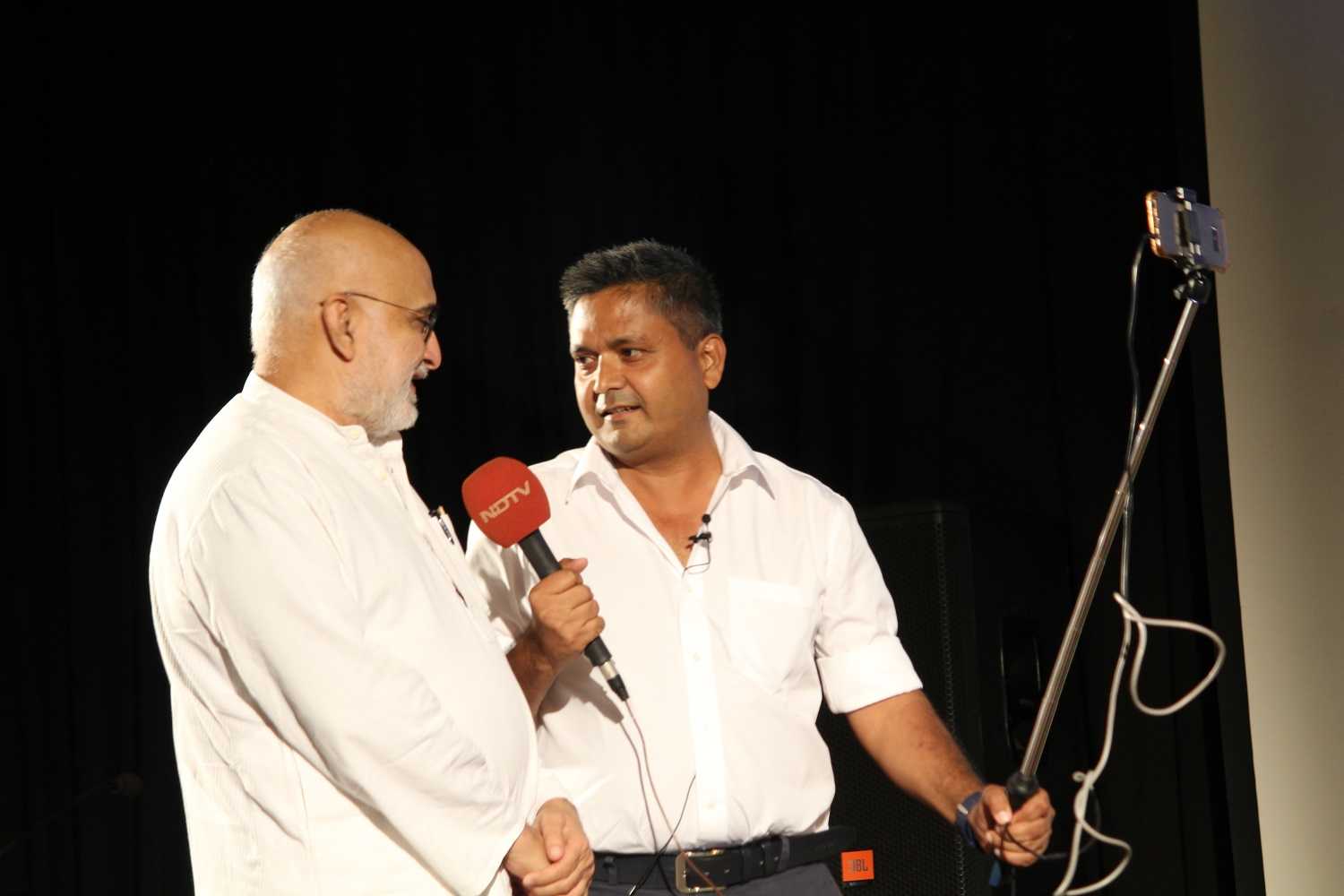While Vipin focused on how digital cinema has changed filmmaking, Singh spoke on how mobile journalism has helped the vernacular make place within national mainstream broadcasts.
Vipin Vijay and Uma Shankar Singh on effects of turning digital at Open Frame Film Festival
New Delhi - 17 Sep 2018 10:55 IST
Updated : 10:56 IST


Abhija Ghosh
Two masterclasses held on 13 September at the PSBT Open Frame Film Festival dealt with the question of the what it means to practice or make digital cinema today. Both sessions took on two very different aspects of digital cinema. While Vipin Vijay spoke on ways the digital turn poses questions to filmmakers about their methods of constructing visual images, Uma Shankar Singh demonstrated the practical aspects of news reporting from the field equipped only with a mobile phone, a selfie-stick and a microphone.
Filmmaker Vipin Vijay conducted an interesting session titled 'The Discourse of Things' in which he demonstrated how non-fictional images whether painted, photographic or cinematic have historically tried to frame subject and objects, in turn rendering an anthropological imagination on such visual culture.
Beginning the session with a personal anecdote on how one needs to overcome the fear of the camera, Vipin emphasized on the need for a
cinematographic rigour while making films, especially, in the light of digital cinema practices.
Today, when cinematic reality can be constructed in ever increasing indexical depth and photographic clarity just by sitting in front of a computer, what happens to the role of the cinematographer? According to Vipin, this is where the cultural knowledge of the filmmaker comes in, which can not only open up the cinematic image, but also take on the role of inquiring into aspects of human thought.
Reflecting on his own practice, Vipin showed excerpts from his own fiction and non-fictional works like Video Game (2006), which was a PSBT film screened at a previous edition of Open Frame Film Festival, and Chitra Sutram (2011). Through these films, he also discussed the role of memory in image making practices with a certain archaeological passion for forgotten spaces and lost objects, stating the blurring of lines between the fictional and documentary images.
The final masterclass on mobile journalism, popularly referred to as 'MOJO' was a much-awaited session at the festival. Journalist Uma Shankar Singh of NDTV, a news channel, begun this session by playing his mobile coverage of remote areas of Bihar during the devasting floods in 2017. While personal digital technologies such as the smartphone and the selfie stick are mostly associated with social media practices, this session also highlighted how game changing these compact and portable technologies have been for broadcast media.
Keeping the entire session interactive and conversational, Singh discussed the pros and cons of such reportage. Taking from personal experiences, Singh described the ways in which minimal equipment grants the reporter mobility and access to situations which would be otherwise difficult to access with the setup of the OB van unit and an additional cameraperson.
Mobile journalism necessarily entails shifting from conventional methods of live and feature reporting for television news and emphasizes the need to adapt to both the available means of technology and the situations in the field. Most significant take away from this session and his own notes from the field, was how low-cost technologies can facilitate the regional and the vernacular to make place within national mainstream broadcasts and airtime.
The masterclasses were held on 13 September at the India International Centre, New Delhi as part of the Open Frame Film festival 2018.
Related topics
Open Frame Film Festival

